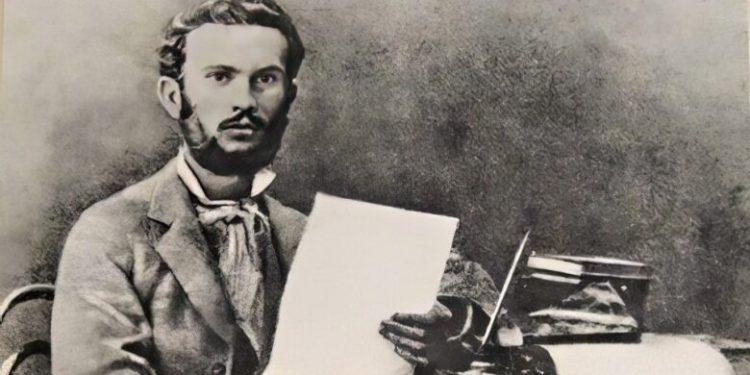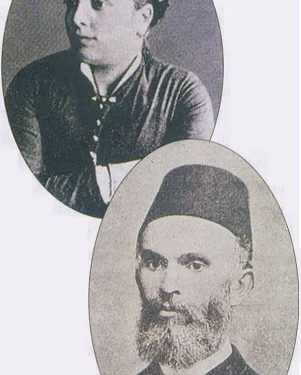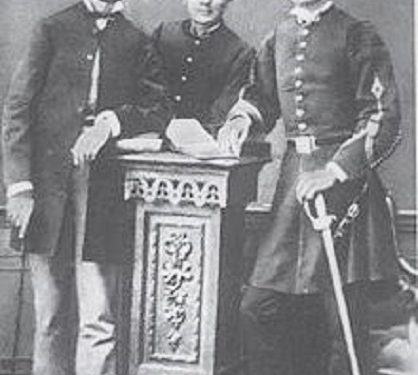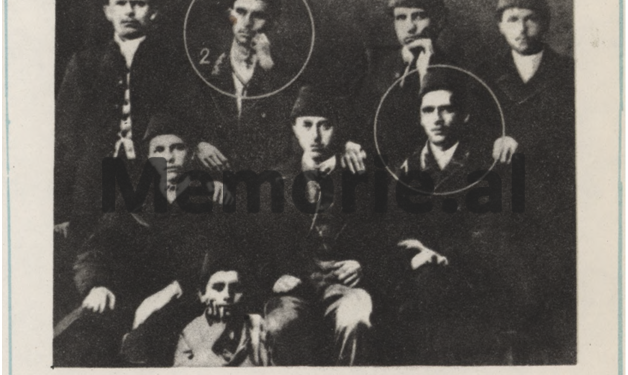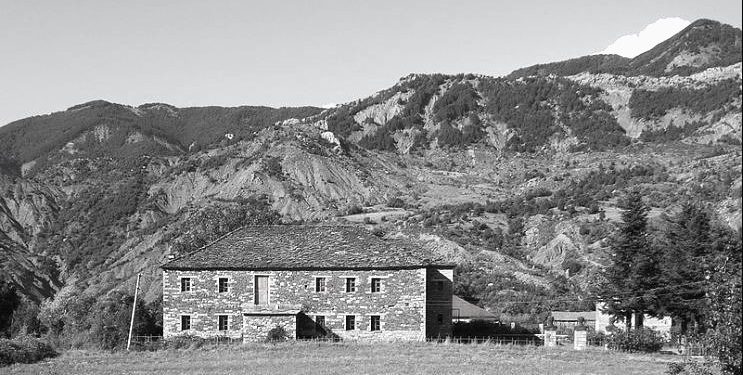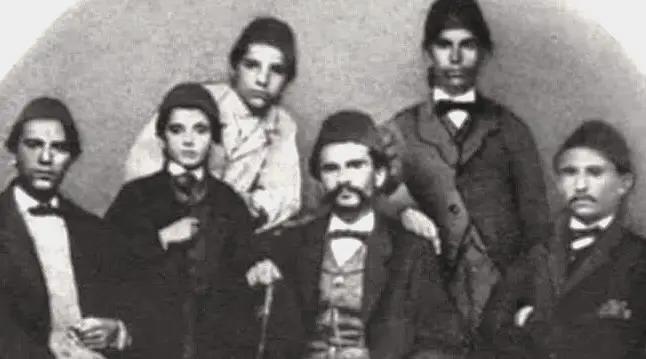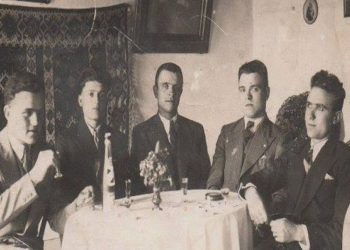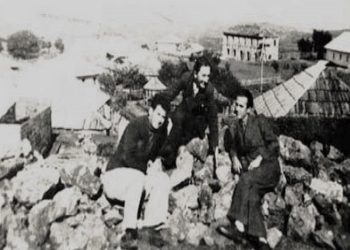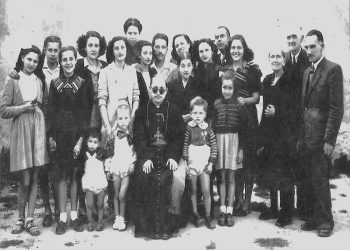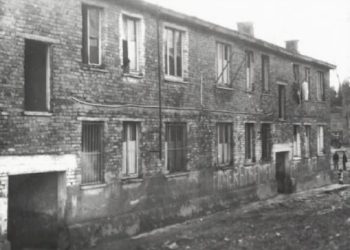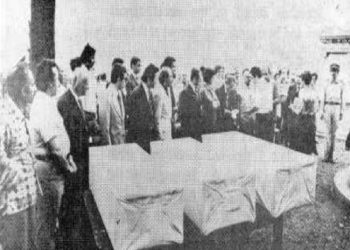By Prof. Zija Xholi
Memorie.al / In the early 1970s, a young man, Sami Frashëri, left his native village, the mountain village of Frashëri, to settle in Istanbul, the capital of the Ottoman Empire. There he would live and work until he closed his eyes forever, on June 18, 1904, this bitter day of death, which we remember with honor and respect on every anniversary.
Frashëri’s talent
Over time, for his unusual talent, he soon began to enjoy greater and greater respect and authority among the Albanians there; He impressed everyone with his handsome face, his broad forehead, his white beard like that of a saint, and his seriousness as a missionary, who has in his hands cultural works that he is writing and political burdens that he must bear.
He declared his mission as a patriot, to which he would remain faithful for the rest of his life, from the very first time he set foot in Istanbul and from the very beginning when he took up his pen and began to write down what he thought and dreamed about.
About this mission that he called sacred, in one of his first theatrical works “Belief or Keeping the Promise”, he would write with pride: “For a long time, the idea of writing a theatrical piece in which some virtues and customs of the Albanian people would be highlighted has not left my mind. And this, not because I am a son of this nation, but because I have noticed in them some high manly virtues, such as love for the homeland, the spirit of sacrifice, faith and the fact that they do not consider life as anything”. As in his beginnings, so throughout his life and in every case, Samiu has never allowed himself not to point out his pride in being Albanian.
Thus, in 1878, a Greek newspaper published in Istanbul, “Neologos”, took the courage and insulted Samiu, calling him; “a Tosk and a fanatic”. And Sami’s harsh, on-the-spot response did not delay in coming out and telling the Greek journalist, full of dignity and pride: “The word ‘toskë’, which ‘Neologos’ has used as an insult and mockery, is for us a great name that makes us proud.
Therefore, we are not angry with ‘Neologos’ for this; on the contrary, we thank him”. If we were to take a quick look at Sami’s literary creation and his activity, which he never stopped, we would find in them a permanent, unchanging theme, that of exalting the Albanian people and their thoughts, to save them from the dangers that surrounded them at that time.
Sami Frashëri’s Dramaturgy
After “Besa”, Sami dedicated a couple more pieces to dramaturgy and then, after 2-3 years, abandoned dramaturgy and devoted himself entirely to journalism. Starting in 1873, he published the newspaper “Feneri” and then the newspapers “Kopështi” (1873), “Mëngjesi” (1878), “Zëdëvëtëri i Lindjes” (1878), “Java” (1881). Even in journalism, Samiu is a patriot, who writes and defends the Albanian national issue with wisdom and determination.
If we were to pick up and browse, for example, any issue of “Lajmtari i Lindjes”, we would notice without any effort that Samiu took up the pen of a journalist, not to engage in politics and diplomacy, but to elevate the Albanian issue and to defend it from the unjust decisions of the Berlin Congress and from the claims of Greek, Serbian and other Balkan chauvinists.
The newspaper sounded the alarm on its pages about the danger that threatened the Albanian cause and at the same time, made an appeal to the Albanians to save their homeland.
Why did Samiu devote himself to the written language?
After journalism and parallel to it, if not above it, always in the name of the Albanian cause, Samiu in the 1970s devoted himself to the urgent need to create a written Albanian language. To make Albanians aware of this need and to sensitize them, Samiu wrote at the time: “Nations are held together by language.
A nation that loses its language is lost and forgotten”. And full of compassion, Samiu warned and advised the Albanians that; “today is the day for Albanians to take up, write and sing their language, so that they can preserve the nation”.
To achieve this lofty goal, the patriots of the time gathered in Istanbul and in 1879, created the “Society of Albanian Script Printers”, at the head of which the wise and tireless Sami Frashëri was elected.
Sami was aware that a language to be written needs, at least, a primer and a grammar. Even to these two tasks, it was the tireless Sami who responded immediately. Thus, in 1886, Sami wrote and published in the printing house of the “Drita” Society in Bucharest, “Abertaren e għuħa Shqipe”.
With these two fundamental works of any written language, our language already had the wealth and guarantee that it would be written and would progress to become a true language of learning and culture. Samiu sought and valued the written language, not only in the name of the affirmation of Albanian nationality, but also more broadly, in the name of the social progress of society and the moral perfection of Albanians.
In the name of these truths, Samiu wrote: “Knowledge is what makes a person called a human being and distinguished from other animals”. And further still, following this reasoning, he writes: “In the world, the main cause of all evils and mistakes is ignorance”.
Creativity in the Turkish language
Consequent to the value of the knowledge that he propagated and believed in more than anyone else, Samiu, in addition to the works that he wrote and published in the Albanian language, in the 80s he wrote and published in the form of brochures, in the Turkish language, on a range of knowledge such as; “Heaven”, “Earth”, “Man”, “Women”, “Islamic Civilization”, “Myths”, which were followed by “Entertaining Stories” (1883), “Again Man” (1885), “Language” (1886) etc.
And as never shy about what he wrote or what he intended to write, Sami, in the 1880s, set to work and began to compile and publish, one after the other, in Turkish, three large dictionaries, a “Turkish-French Dictionary” (1882), a “French-Turkish Dictionary” (1885) and a “Dictionary of the Turkish Language” (1900).
For the tedious work that a dictionary requires and for the value that each dictionary has, anyone can say a word and give an assessment, but for all three dictionaries together, I would make a special addition, which, in my opinion, increases their value.
Through the Turkish language dictionary and two other dictionaries, Sami, as a man of broad culture, connected to the progressive circles of the then Turkish intelligentsia, aimed for the Turks to distinguish themselves as a separate nation, even with their own special language, which is neither Arabic nor Persian, and to achieve the unity of their nation and move forward on the path of progress and knowledge.
Through this, through the other two dictionaries, Turkish-French and French-Turkish, Sami aimed to educate the young Turkish intelligentsia with the faith and appreciation of the French Enlightenment, of that philosophy that proclaimed to Europe and the world, the great principles of human rights, the principles of freedom, equality, fraternity, tolerance against the privileges and arbitrariness of the feudal class and feudal monarchies.
Much more monumental in terms of volume and intellectual and scientific value than dictionaries is his Encyclopedia “General Dictionary of Geography and History”, in 6 volumes with almost 5000 pages written in Turkish, which Sami began in 1889 and finished in 1898.
Sami Frashëri’s Encyclopedia
With his Encyclopedia, Sami perhaps sought to do for Turkey what Diderot did for France in the 18th century, namely, to spread the great principles of progressive culture and European civilization, while for Albania, whose geography and history he gave a special place to in his Encyclopedia, Sami aimed to defend and exalt the Albanian national cause and precisely, to proclaim its wealth and territorial integrity, to exalt its ancient history, to mention and exalt the distinguished people of its past, to appreciate the special mortality of the Albanians, who, for all these reasons, which Sami appreciates and argues in his Encyclopedia, gave the Albanians every opportunity to emerge as a separate nation and to progress on the path of freedom and development.
Sami’s entire intellectual creation in the Turkish language and especially his dictionaries and encyclopedia, are the inexhaustible wealth that Sami has left to the progressive Turkish culture and, at the same time, his political testament to our people, so that they may know how to value friendship with the Turkish people and consider them as one of their best and most loyal friends and allies.
We would be remiss if we did not finally talk about the literary-political work in Albanian ” What Albania has, what it is and what it will become “, published in 1899 in Bucharest, which also constitutes the most precious treasure of the Albanian National Renaissance. / Memorie.al




